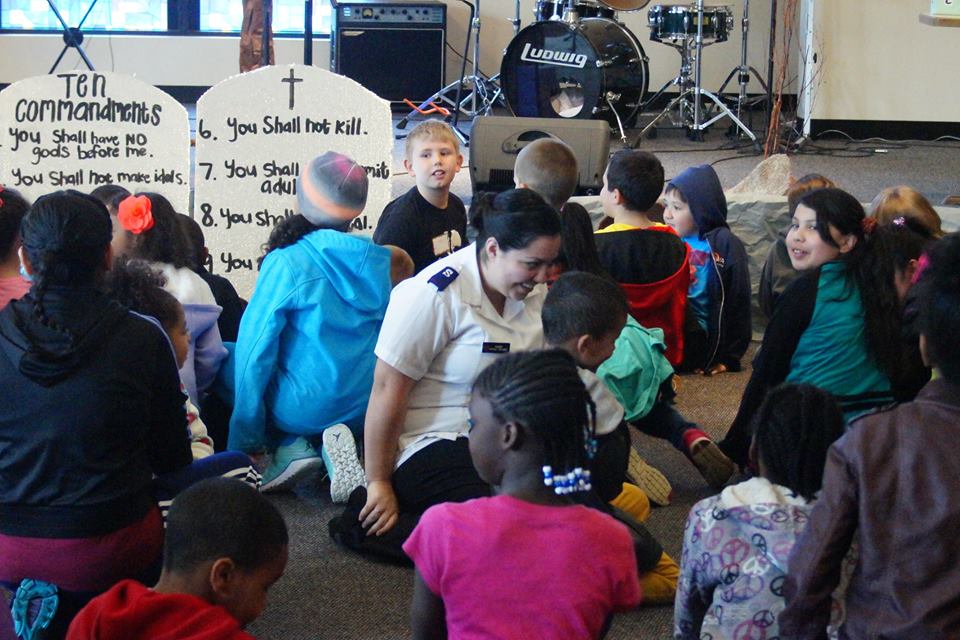By Bob Docter –
The corps of cadets, over 100 strong, entered the College for Officer Training at Crestmont in September for education, training, and to actualize their session names. They are Joyful Intercessors and Messengers of the Gospel. To each of you, my thoughts, hopes and prayers are with you.
Let’s analyze the meaning of these titles. Intercessors interpose themselves in an already established system. The Joyful part lets you know the intercession is to be positive, helpful and kind. You’re tactful, diplomatic, not critical or judgmental.
Now, the Messengers are asked to deliver the message of the document. Probably, only a few of the experienced among you will be required to deliver the message every week. This will allow you to gain experience, and also, I think, to make you more nervous when you get asked.
But each of you, regardless of your position in life, could profit from a little self-analysis concerning the manner in which you demonstrate the act of relating to others.
Have you ever been the president of a parent-teacher association (PTA)? I will wager that you haven’t been in the job more than 60 minutes before you have received comments from at least two or three people on the way you’re doing things, the appointments you make to various positions, your tone of voice in leading the first meeting, the goals you’ve established this semester, the distribution of the budget, and the personal inadequacy you bring to the task—all under the “guise” of seeking to be helpful. Be assured there will also be many fully positive comments as well. The world is not coming to an end. I hope you are kind even in the back of your mind. Never discount a critic or diminish them. Never be defensive. Take good ideas.
You see, regardless of your job or the place or type of your future appointment, your fundamental responsibility must be to model Christ-like behavior (it’s not only sweetness) and build relationships that genuinely connect and model his behavior with others. The best place to learn that comes with membership in your session.
So, take a look at these questions and answer with “often” or “seldom.”
How often do you:
- Recognize your impact positively or negatively on others?
- Analyze interpersonal dynamics accurately?
- Attend to issues, misunderstandings, and breakdowns in communication?
- Use effective styles of communication?
- Identify blind spots and blockages in your awareness?
- Develop rapport and trust with others?
- Respond to interpersonal stress resourcefully?
- Send clear, complete and straightforward messages?
- Attend to others’ nonverbal cues as an ongoing cue to your own communication effectiveness?
- Help others to express their own concerns accurately?
- Discover the key information in a situation?
- Prevent or resolve impasses?
- Understand and support others’ personality differences?
- Turn your own and others’ resistance (defensiveness) into a resource?
- Make better decisions based on full vs. partial awareness (information)?
- Give positive feedback?
- Receive positive feedback graciously?
- Give negative feedback skillfully and tactfully?
- Receive negative feedback (criticism) constructively?
- Deal effectively with others’ indirect/passive anger?
- Handle others’ direct anger productively?
- Use your own anger constructively?
- Track interpersonal or group progress?
- Recognize and change harmful communication?
- Create positive communication strategies for handling difficult situations?
Now, try to evaluate your own response to each item. Score 1 to 5 on each in relation to your personal desire to change: 1 being fully satisfied and 5 being something you feel you’d like to change. Pick three or so and establish goals. If you think your impact in a situation is usually positive, i.e. helpful, and you have an ease of communicating about this, mark it a 1. However, if your usual desire to participate is weak or too strong, tending toward silence or knowing you dominate too often, mark it a 5.
At the end check your numbers. Change happens as a result of setting goals. How strong are you in addressing what you tend to believe is something you need to change in your life? These goals are personal.











